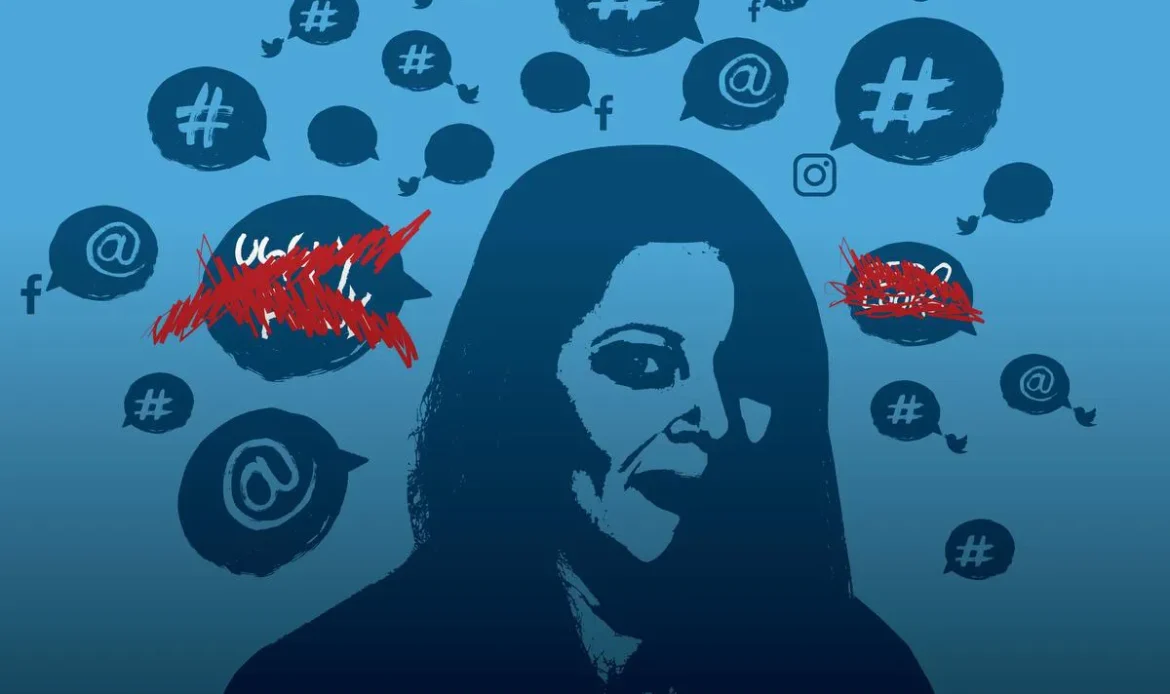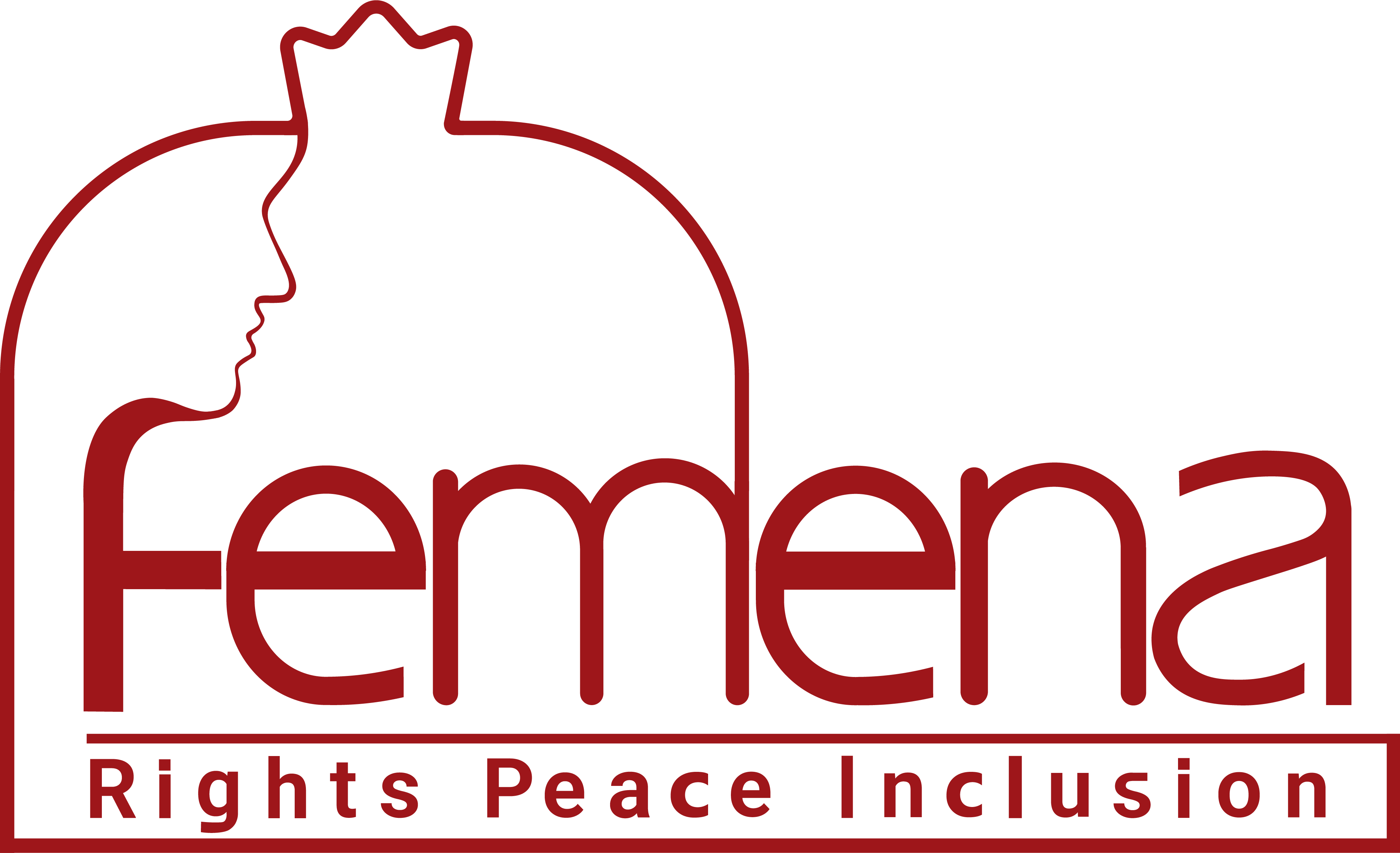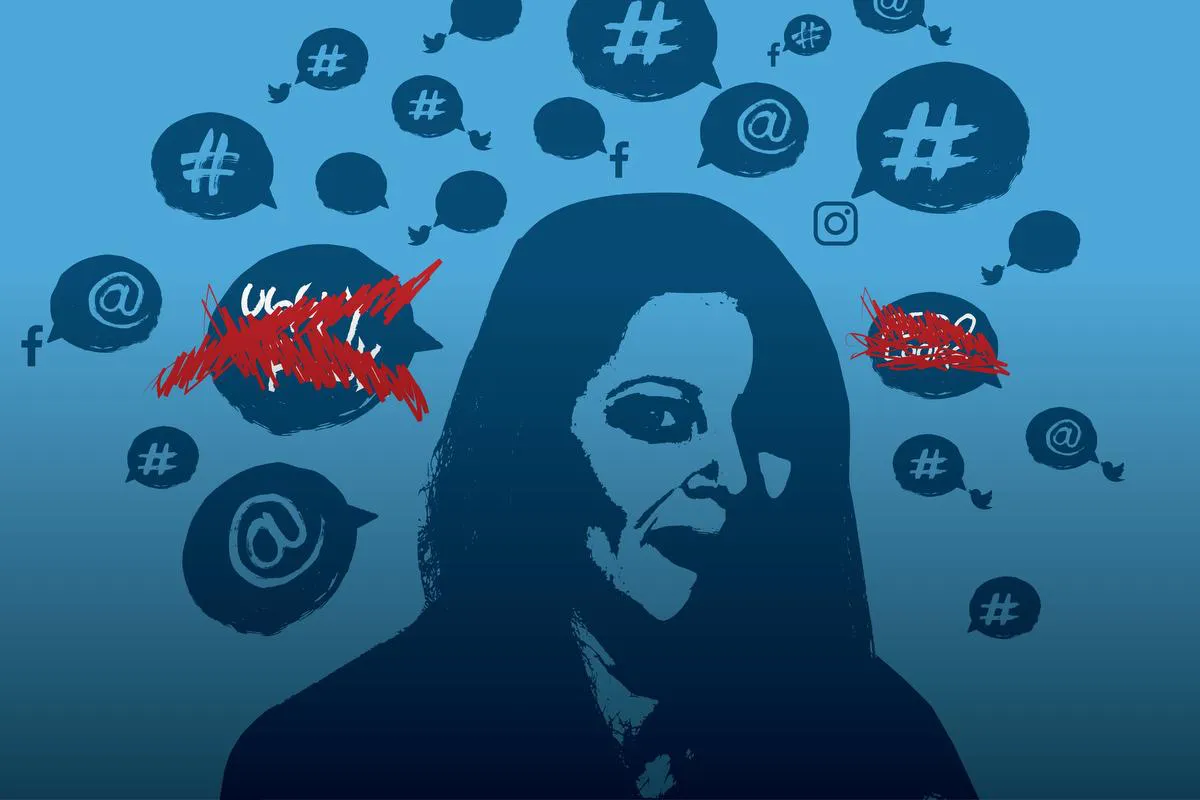
Author: Yara WHRD Center
During the last decade, the expansion of social networks and democratization of virtual space has created an opportunity for the social participation of women and sexual and gender minorities and to raise voices that were historically silent and marginalized due to numerous obstacles. For instance, on Twitter, we have witnessed widespread activism of women in different forms – such as speaking up about their experiences of violence and resistance, creating feminist solidarity, launching online campaigns, etc. The rise of online feminist activism has been a catalyst for driving attention globally to issues concerning women and their everyday experiences of violence and harassment, both online and offline. Social media platforms have also been places of political struggle and protest for many women who otherwise would have been unable to speak out about public and political issues. At the same time, women who participate in these online fora face various forms of violence—predominantly text-based—including online misogyny. Such acts severely affect women’s rights to equal participation in the public sphere.
virtual violence; A serious threat to digital feminism
Online spaces in countries where women’s rights activists and human rights defenders in real spaces are faced with severe repression, arrests and unfair trials and judicial sentences and the civil spaces are continuously shrinking are of vital significance for the continuation of feminist activism and the defense of human rights. But at the same time that social networks have empowered feminist organizing, they also have created a fertile ground for violence and misogyny. Today, virtual violence against women and gender minorities has become a universal concern and a threat to global feminism and digital feminism in particular. Women are the targets of attacks that are sexual and gendered in nature.
It seems that the online sphere does not tolerate loud voices of feminist protest, and digital violence is used as a tool to silence women and their demands. In recent years, we have witnessed widespread violence on Persian Twitter space. Although men are also targets of such attacks, both experimental observations and research have shown that online abuse against women generally has a sexual and gendered nature: Such abuse includes direct or indirect threats of physical or sexual violence, discriminatory abuse targeting one or more aspects of a woman’s identity, targeted harassment, and privacy violations such as doxing or sharing sexual or intimate images of a woman without her consent. These attacks have intensified the marginalization of many Iranian women, feminist activists and human rights defenders.
A study conducted in 2014, titled “Sexual and Gender Harassment in Cyberspace,” by Simindokht Kargar, shed light on Iranian users’ understanding of sexual and sexist harassment in cyberspace and identifies the nature of their experiences. The findings of this research indicate that 38% of respondents had experienced sexual and sexist harassment in cyberspace, 83.3% of them experienced stalking by someone in cyberspace, and 82.2%, received messages containing sexual or sexist harassment on messenger applications. In another qualitative research titled “State-aligned trolling in Iran and the double-edged affordances of Instagram”, Kargar investigates the size and perpetrators of online violence, harassment, and abuse against critical members of the Iranian diaspora, including journalists, civil society activists, and artists, among many others and states: “Online harassment is increasingly applied as a form of information control to curb free speech and exert power in online public spheres. In recent years, states have appeared to be particularly invested in weaponizing information against dissidents in an attempt at dominating social and political discourses. Reports by prominent human rights institutions, as well as anecdotal evidence, indicate that Iran remains among the states with a track record of such actions”.
Twitter has failed to protect women human rights defenders from abuse
Online misogyny has become an important obstacle for women’s equal participation in the public and political arena. Virtual violence violates the right to freedom of expression of feminist activists and human rights defenders and forces them into isolation and self-censorship. A report published by Amnesty International states: “Between December 2016 and March 2018, Amnesty International has conducted qualitative and quantitative research about women’s experiences on social media platforms including the scale, nature and impact of violence and abuse directed towards women on Twitter, with a particular focus on the United Kingdom (UK) and the United States of America (USA). During this investigation, Amnesty International interviewed 86 women journalists, politicians, bloggers, comedians, activists, etc.”
The research claims that abuse on Twitter has a deeply intersectional nature and highlights the particular experiences of violence and abuse on Twitter against women of color, women from ethnic or religious minorities, lesbian, bisexual or transgender women – as well as non-binary people – and women with disabilities, who are being affected more severely. These findings paint a worrying picture that Twitter can be a toxic place for its female users.
The report states that under the United Nations (UN) Guiding Principles on Business and Human Rights, Twitter, as a company, has a specific responsibility to respect all human rights – including the rights to non-discrimination and freedom of expression and opinion – and to take concrete steps to avoid causing or contributing to abuses of those rights: “Twitter’s failure to meet its responsibilities regarding violence and abuse means that many women are no longer able to express themselves freely on the platform without fear of violence or abuse. Many of the women who were interviewed talked about widespread violence and abuse on Twitter and emphasized that staying and working in this space is vitally important for them, both in terms of their personal lives and their professional lives. Women rely on social networks such as Twitter for advocacy, interaction, public mobilization, access to information and visibility. The results of this research also indicate the gross negligence of the Twitter company in fulfilling its responsibilities of creating an environment away from discrimination, harassment and violence.” Amnesty International claims that Twitter has not taken enough action to protect and support feminist activists and is still not doing what it should to protect women from harassment and violence. This has led to significant consequences, including self-censorship and silence of activists. In 2018, Amnesty International listed and suggested concrete measures for Twitter to improve its policies regarding protection of women and their activism. But as Amnesty International states, it is not clear why the company has refused to implement these measures. Today, it is necessary for human rights defenders to insist on the right to protection from abuse and the right to freedom of expression in virtual space and hold companies like Twitter accountable. Speaking out about sexist digital abuse and recognizing its harsh consequences for mental health and the role it plays in silencing the voices of women activists is a preliminary step. Combatting the current situation requires collective solutions and affirmative measures. However, there exist some recommended strategies to deal with cyberbullying or at least reduce its harm on the individual level. It is also important to discuss and spread awareness of these strategies as an effort to make virtual spaces safer for women and gender and sexual minorities.
Resources:
1.Twitter still failing women over online violence and abuse, Amnesty International, September 2020
2. Online Misogyny: A Challenge for Digital Feminism? Journal of International Affairs, 20193. Toxic Twitter – A toxic Place for Women, Amnesty International


